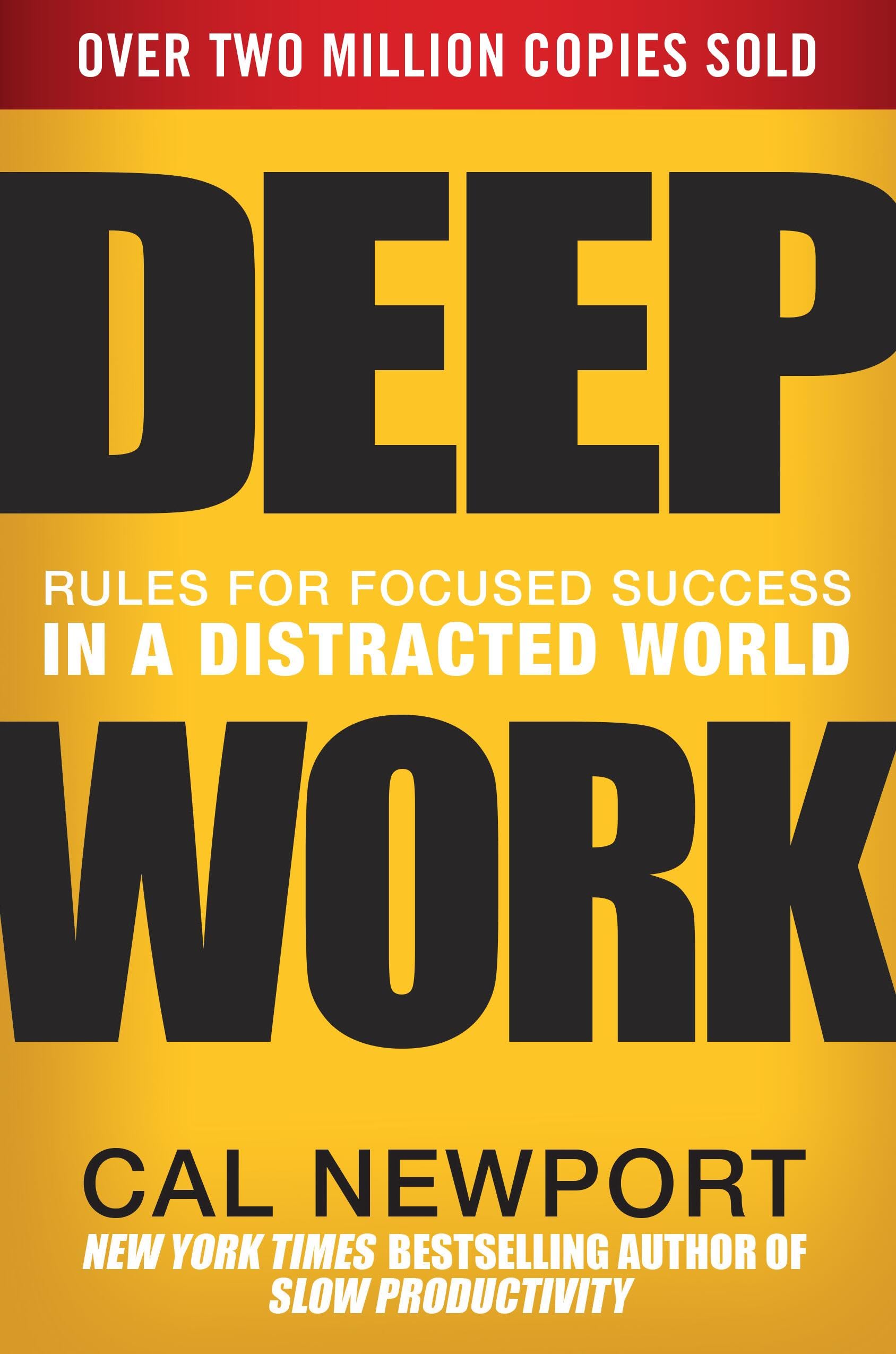Meanwhile a lot of time went by, I'm almost 40, and I have worked at 8-10 companies (incl. FAANG, my own startup). His later advice, from the book "Deep Work", was not in line with my work experience [2]. The problem is, Cal doesn't have a regular 9-5 job as a tech worker, at a tech company. He's in academia (and self-employed), which is very different --- I know, I also worked in academia! And this shows.
For example, I was reading his book Deep Work while I was at Facebook, where the whole company is on Workplace/Workchat internally, with frequent notification/mention/chat interrupts, and the culture is to have quick response times. So no Deep Work, yet velocity and productivity is very high. It's not true that you need a lot of focused time to get things done, you can manage it in smaller chunks. It'd be convenient, but it's not realistic.
Reflecting on this article, in my experience, the key thing to focus on for companies is not personal productivity but team organization. The topline differentiator between high-velocity and high-productivity organizations versus the rest is that these are a collection of self-sufficient cross-functional product teams. The rest, which is most organizations, usually run "projects" instead of products, and multiple departments and teams, with different reporting lines, goals, OKRs/KPIs, etc. are exptected to work together to make it happen --- the result is the organization becomes one big waiting/blocking graph, with 80% of projects being blocked at any given time. This also makes personal productivity harder, because more "sync" and "alignment" type email threads and meetings are needed. In this model people have to work with more people they don't know/trust, so more people are communicating with each other who don't know how to communicate with each other, they may not even know the other person's exact job description or timezone location.
Having said that, I appreciate Cal's perspective, and I'm happy to support him by buying his books.
[1] https://www.amazon.com/Good-They-Cant-Ignore-You/dp/14555091...
[2] https://www.amazon.com/Deep-Work-Focused-Success-Distracted/...
I read Cal Newport's Deep Work (https://www.amazon.com/Deep-Work-Focused-Success-Distracted/...), which explains how to work in a way that maximizes your output. In short, he recommends spending short periods of time hyper-focused on difficult problems with absolutely no distractions.
I applied this way of working to how I approached studying for software engineering and it helped me tremendously. I was able to pick up difficult solutions quite quickly without spending huge amounts of time studying. I've continued to use this way of working over the last couple of years, which has helped me perform well at work + on side projects.
During this time, I had no way to track my deep work hours or what I was getting done in those sessions. This allows you to do just that. You can think of it like Google Analytics for your Deep Work time.
It's in the early stages now, but I'm in the process of adding essential features.
I applied this way of working to how I approached studying for software engineering and it helped me tremendously. I was able to pick up difficult solutions quite quickly without spending huge amounts of time studying. I've continued to use this way of working over the last couple of years, which has helped me perform well at work + on side projects.
During this time, I had no way to track my deep work hours or what I was getting done in those sessions. This allows you to do just that. You can think of it like Google Analytics for your Deep Work time.
It's in the early stages now, but I'm in the process of adding essential features.


> Deep Work https://www.amazon.com/Deep-Work-Focused-Success-Distracted/...
> Can't Hurt Me https://www.amazon.com/Cant-Hurt-Me-Master-Clean/dp/15445078...
> Talking to Humans https://www.amazon.com/Talking-Humans-Success-understanding-...
> Rich Dad Poor Dad https://www.amazon.com/Rich-Dad-Poor-Teach-Middle/dp/1612680...
> 4 Hour Workweek https://www.amazon.com/4-Hour-Workweek-Escape-Live-Anywhere/...
> Steve Jobs https://www.amazon.com/Steve-Jobs-Walter-Isaacson/dp/1451648...
> The Design of everyday things https://www.amazon.com/Design-Everyday-Things-Revised-Expand...
> Siddhartha: A Novel https://www.amazon.com/Siddhartha-Novel-Hermann-Hesse/dp/055...
> The Four Agreements https://www.amazon.com/Four-Agreements-Practical-Personal-Fr...
> Rework https://www.amazon.com/Rework-Jason-Fried/dp/0307463745?dchi...